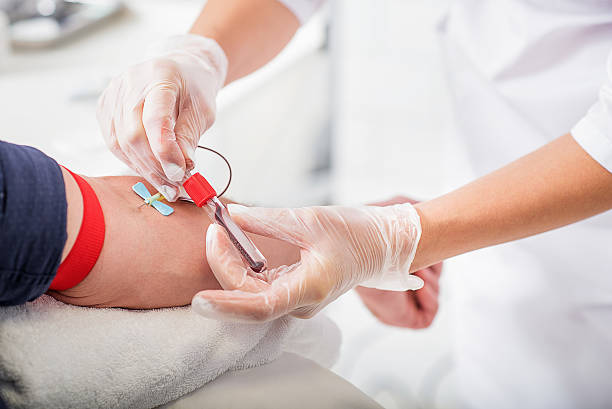Understanding Red Cross Blood Donation Requirements
Introduction to Blood Donation
Blood donation is a vital and selfless act that can save lives and improve the quality of life for many individuals in need. Organizations such as the Red Cross play a crucial role in facilitating this process, ensuring that the donated blood is collected, tested, and distributed to healthcare facilities. To maintain the highest standards of safety and efficacy, the Red Cross has established specific requirements for potential donors. These requirements are designed to protect both the donors and recipients, ensuring that the blood supply remains safe and effective.
General Eligibility Criteria
The Red Cross has set general eligibility criteria for blood donors to ensure that each donation is safe for both the donor and the recipient. Firstly, donors must be at least 16 years old, though some locations may have different age requirements. Minors aged 16 or 17 must have parental consent to donate. Additionally, donors must weigh at least 110 pounds (50 kilograms) and be in good health. Good health is defined as feeling well on the day of donation, with no symptoms of illness or infection.
Donors are also required to present a valid form of identification. This is necessary to verify the identity of the donor and ensure that all records are accurate. The Red Cross takes these steps seriously to maintain the integrity and safety of the donation process.
Health and Medical History Considerations
A key aspect of blood donation is the evaluation of the donor's health and medical history. The Red Cross uses a thorough screening process to ensure that donations are safe. Potential donors are asked detailed questions about their medical history, including any chronic conditions, recent illnesses, or medications they are taking. Certain medical conditions and medications may disqualify individuals from donating blood temporarily or permanently.
For instance, individuals with a history of certain infectious diseases, such as hepatitis B or C, HIV/AIDS, or syphilis, may be deferred from donating. This is to prevent any risk of transmitting infections through blood transfusions. Additionally, recent surgeries, tattoos, or piercings may affect eligibility depending on the risk of infection.
Pregnant women are typically advised not to donate blood. The Red Cross recommends that individuals who have recently been pregnant wait for a period after childbirth before considering blood donation. This precaution is in place to ensure the health and well-being of both the donor and their newborn.
Travel and Lifestyle Factors
Travel history and lifestyle factors can also impact eligibility for blood donation. The Red Cross evaluates recent travel to areas where certain diseases are prevalent. For example, travelers to regions with high rates of malaria may be required to wait for a specific period before donating blood. This precaution helps reduce the risk of transmitting diseases through donated blood.
Lifestyle factors, such as high-risk behaviors or certain types of medical procedures, are also considered. The Red Cross assesses whether recent activities or exposures might affect the safety of the blood donation. It is important for potential donors to be honest and thorough in disclosing their lifestyle and travel history during the screening process.
Blood Donation Frequency and Timing
To ensure the health and safety of donors, the Red Cross has established guidelines regarding the frequency of blood donations. For whole blood donations, donors are generally eligible to donate once every 56 days. This interval allows for the body's natural replenishment of blood and ensures that donors do not experience adverse effects from frequent donations.
For specific types of donations, such as platelets or plasma, the recommended intervals between donations may differ. Platelet donors are typically eligible to donate every 7 days, up to 24 times per year. Plasma donations can be made more frequently, with eligibility extending to once every 28 days. The Red Cross provides clear guidelines for each type of donation to help donors plan their contributions effectively.
Preparation and Aftercare
Proper preparation before donating blood is essential for a successful and safe donation experience. The Red Cross advises donors to drink plenty of fluids and eat a healthy meal before their appointment. Staying hydrated and well-nourished helps to prevent potential issues such as dizziness or fainting during or after the donation.
During the donation process, donors are seated comfortably and monitored by trained professionals. The actual donation typically takes around 8 to 10 minutes. After the donation is completed, donors are provided with refreshments to help them recover. It is important for donors to rest for a few minutes and avoid strenuous activities immediately following the donation.
Addressing Common Concerns and Misconceptions
Many potential donors have questions or concerns about the blood donation process. Addressing these concerns is crucial to ensuring a positive experience for donors and encouraging more people to participate. Common misconceptions include fears about pain or discomfort, the safety of the donation process, and the impact on overall health.
The Red Cross emphasizes that blood donation is a relatively quick and straightforward procedure. While donors may experience a brief needle insertion, the discomfort is minimal and short-lived. The safety measures in place, including sterilized equipment and trained staff, ensure that the donation process is as safe as possible.
Additionally, blood donation does not significantly impact a donor's overall health. The body naturally replenishes the donated blood volume, and most donors recover quickly. The Red Cross provides information and support to help donors understand what to expect and to address any concerns they may have.
The Impact of Blood Donation
Understanding the impact of blood donation can be a powerful motivator for potential donors. Each donation has the potential to save multiple lives, as donated blood is often separated into different components, such as red blood cells, platelets, and plasma. These components can be used to treat a variety of medical conditions, including trauma, cancer, and chronic illnesses.
The Red Cross plays a crucial role in managing the blood supply and ensuring that it reaches those in need. By donating blood, individuals contribute to a vital public health resource and support the well-being of their communities. The collective efforts of blood donors help to maintain a steady and reliable supply of blood, which is essential for effective healthcare delivery.
Conclusion
The Red Cross blood donation requirements are designed to ensure the safety and effectiveness of the donation process. By adhering to these guidelines, potential donors can contribute to a critical public health service while safeguarding their own health and well-being. Understanding these requirements and addressing common concerns can help individuals make informed decisions about blood donation and encourage more people to participate in this life-saving act.
The Red Cross remains committed to providing comprehensive information and support to blood donors. Their dedication to maintaining the highest standards of safety and quality ensures that each donation has the maximum impact on those in need. Blood donation is a valuable and rewarding experience, and the Red Cross is dedicated to making it accessible and safe for all who wish to contribute.




